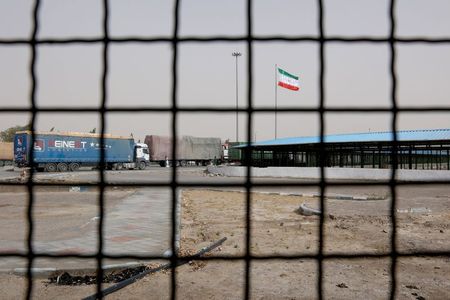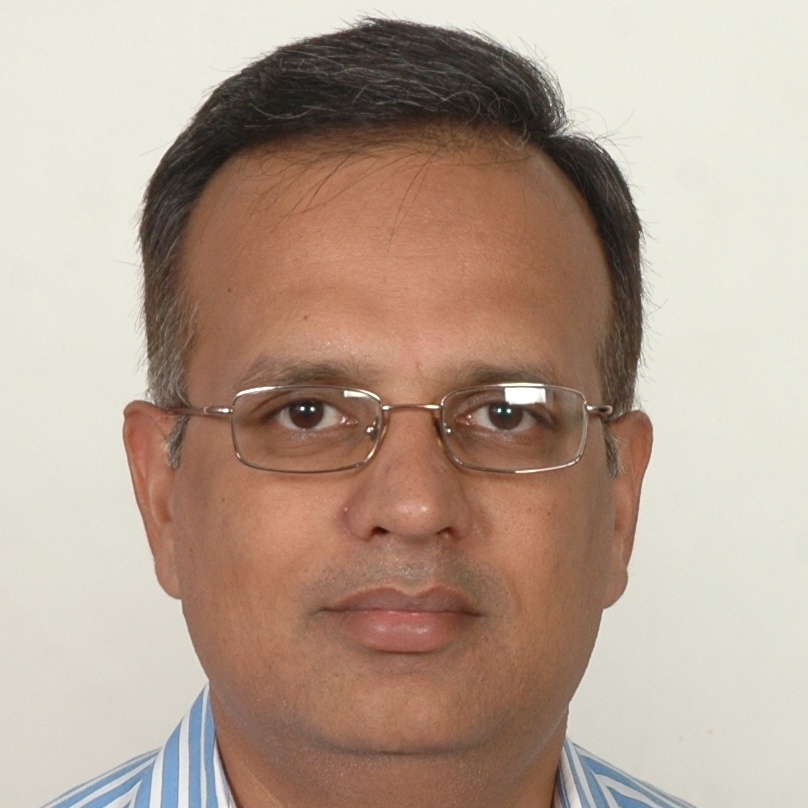
Iran Nuclear Deal: One Last Chance to Salvage it

Iran nuclear talks are set to resume in Vienna on 29 November 2021. The last round of talks, sixth in the series of talks since it commenced this year, were suspended in June 2021, when Iran presidential elections took place. Coming after a gap of five months and significant improvements in the nuclear enrichment process in Iran, this could be a vital round of talks to close the gaps and come about with a possible and acceptable formula for all parties. If however, the talks stall/fail this time, possibility of a future deal may become even more difficult.
The Global Flashpoint
Iran nuclear program has been a geopolitical flashpoint not only in the West Asian region but for the entire world over several decades. In a region riddled with intra-regional conflicts having serious global security implications, the possibility of Iran acquiring nuclear weapons could further complicate the fragile regional equilibrium. The Saudi-Iran rivalry as well as Israel-Iran hatred could acquire a totally new dimension. There is also an apprehension of Israel and possibly the US responding militarily, an intention publically declared by Israel a number of times. Only recently, Israel’s Army Chief of Staff, Lt. Gen. Aviv Kochavi, reaffirming the same stated that the Israeli military was “speeding up the operational plans and readiness for dealing with Iran and the nuclear military threat.[1]”
Buildup to the Present State
The Iran nuclear program, ironically in some sense, was born out of “Atoms for Peace” program sponsored by the US in 1950s. It was in various stages of development over decades, till it captured the global attention when a sensational disclosure by an exiled dissident Iranian group, the National Council of Resistance of Iran (NCRI) on 14 August 2002 revealed the existence of undeclared nuclear facilities in Iran, including pilot uranium enrichment plant at Natanz and a heavy water production plant under construction at Arak. Seven years later, another discovery, this time of an undisclosed and a discreet nuclear plant at Fordow near the holy city of Qom in September 2009, spurred the US administration of President Obama to take the Iran nuclear program and its possible weaponisation in its right earnest.
Years of meeting, standoffs, reviews and negotiations resulted in the Iran nuclear deal finally being signed in July 2015, called as Joint Comprehensive Plan of Action or JCPOA. However, it soon came to be undone when US President Trump came to power in January 2017 and was strongly opposed to it. Acting on his election promise, on 8th May 2018, Trump pulled the plug on the nuclear deal terming it a “horrible one-sided deal that should have never, ever been made”[2].
The nuclear deal talks got a fresh lease of life when Trump was defeated in the US elections and President Joe Biden came to power in 2021. Incidentally, President Biden, in 2015, was closely involved as a part of Obama administration in closing the deal. Soon after Biden took office, US Secretary of State Antony Blinken on 27th January, stated that if Iran were to become compliant with the terms of the JCPOA, the U.S. would re-enter it too[3] . Iran Foreign Minister was quick to point out that it is for the US to make the first move, tweeting “Reality check for @SecBlinken: The US violated JCPOA, who should take 1st step? Never forget Trump’s maximum failure”[4].
The talks finally commenced in Vienna in April with ‘P5 plus 1’ ie China, Russia, Germany, France and the United Kingdom, however the US on Iran’s insistence, participated indirectly. While some officials in the know of things claim that the text of agreement was almost agreed upon when Iran pulled out of talks in June owing to its presidential elections, there is no assurance that the talks will resume from where it was left off in Vienna in June, indicated so by Iran’s Foreign Minister Hossein Amirabdollahian too who recently said, “We don’t want to enter the Vienna negotiations from the deadlock point of the Vienna negotiations”[5].
In fact, President Ebrahim Raisi regime in Iran has projected quite a hard stance on the nuclear talks. During his address to the UN General assembly on 21st September, President Raisi said that “sanctions against Iran are the U.S.’s new way of war with the nations of the world, and a crime against humanity, especially sanctions on medicine”. Iran’s foreign minister Hossein Amir-Abdollahian followed soon afterwards that “Iran does not want to tie its future to the outcome of nuclear talks with world powers and if these talks succeed, so much the better”.
Iranian Deputy Foreign Minister Ali Bagheri Kani, who became Tehran’s chief negotiator in mid-September does not refer to the upcoming talks as nuclear negotiations at all, referring to it instead as “negotiations aiming at removal of unlawful and inhumane sanctions,”[6] indicating that it will insist on the lifting of both nuclear and non-nuclear sanctions. The spokesman for Iran’s foreign ministry, Saeed Khatibzadeh, said at a recent news conference that Iran had three conditions for Washington to return to the deal: It must admit to wrongdoing in pulling out of the deal, it must lift all sanctions at once, and it must offer a guarantee that no other administration will exit the deal as Trump did[7].
Recent Developments
Much has happened this year, especially which relate directly to the possible outcome of talks on the Iran nuclear issue. The most important amongst is the change of guard in three critical countries directly associated with the issue. The US president Biden has brought hope for its revival, while Iran’s new President Raisi has indicated that there will be no more soft approach to the subject; either Iran gets what it should or there is no deal.
Also, Raisi who is recognized as the protégé of Supreme Leader and is tipped to take over as the Supreme Leader after Ali Hosseini Khamenei, exercises enormous autonomy and unprecedented powers over major decisions in Iran. Then there is Israel, where the change of guard from Prime Minister Netanyahu to Naftali Bennett may have brought down the hawkish quotient with regards to Iran but the aggressive intent remains the same. The takeover of Afghanistan by the Taliban in August this year too is significant as Iran shares borders with Afghanistan and offers a major route to the warm waters of Persian Gulf for trade to Afghanistan, giving leverage to Iran in any diplomatic talks with regards to Afghanistan.
On the nuclear enrichment front, Iran has taken significant steps in recent months. It started with 02nd December 2020, when the Iran’s Guardian Council ratified a legislation passed by the parliament requiring Iran to take significant steps to ratchet up its nuclear activities in 60 days if certain sanctions relief measures are not met. This mandated the Atomic Energy Organization of Iran to increase enrichment of Uranium to 20 percent from the permitted 3.67 percent under the nuclear deal as also cease implementing the Additional Protocol if banking and oil sanctions are not lifted. Ever since, despite the talks in Vienna in April, Iran has steadily upped the ante as regards its nuclear enrichment activities are concerned.
On 13th April, soon after a cyber-attack on the Natanz nuclear plant, Iran announced its intention to enrich uranium to 60 per cent. This was a significant escalation in enrichment operations, as once Uranium enriched beyond 20 per cent, it enters a very different nuclear materials safeguards accounting category: Highly Enriched Uranium (HEU) which is very close to the process of getting 90 percent enriched weapon grade uranium.
Soon thereafter, on 16 April 2021, Dr Ali Akbar Salehi, the head of the Atomic Energy Organization of Iran (AEOI), announced on state television that Iran had begun enriching uranium to 60 per cent at the rate of 9 grams per hour, or about one kilogram every five days. Most recently, Atomic Energy Organization of Iran (AEOI) spokesman Behrouz Kamalvandi was quoted stating “We have more than 210 kilograms of uranium enriched to 20%, and we’ve produced 25 kilos at 60%, a level that no country apart from those with nuclear arms are able to produce,”[8].
What Now
Iran’s nuclear enrichment program is therefore acquiring dangerous and irreversible proportions. While there are no indications of Iran weaponising its nuclear program yet, however, the capability is being slowly and steadily developed. The P5 plus 1 have to quickly decide what to do about it. Clearly, the economic sanctions and ‘Maximum Pressure’ imposed by the US has not worked. Iran has always found a way around them.
With China closely aligned with it having signed a 25 year strategic partnership, Iran has a trusted ally. Iraq, well and truly under Iranian influence and Syria under Assad provide Iran with enough possibilities and leverages to sell oil and earn critical revenue. During Qatar’s diplomatic blockade by Saudi Arabia and some of the GCC nations, Iran had come to its help and Qatar will not forget it in a hurry. Also, Iran is unlikely to link its nuclear deal talks with its ballistic missile program or its support to groups like Hamas, Hezbollah etc operating in the region, serving its national security interests.
The history of nuclear weapons clearly demonstrates two clear facts; firstly, no nation has yet been prevented from becoming a nuclear weapons state if it sets it sights on it whether it was India, Pakistan, North Korea or Israel and secondly, there has yet been no incident of a nuclear weapon nation using its nuclear weapons in a conflict. Also, it is presently not in Iran’s interest to weaponise its nuclear program. Instead, it may prefer to maintain a level of ‘nuclear latency’, just below the threshold of a declared nuclear weapons programme.
With the high grade centrifuges speedily churning out 60 percent HEU, it may soon be impossible for the world to get Iran back to the status of 2015. Also, this time, with Iran claiming higher moral ground, it would be difficult to force Iran into a deal, without concrete assurances. Time is therefore running out and these talks may be last chance to salvage a deal on the Iran nuclear issue.
***************
References–
[1] U.S. weighs grim options if nuclear talks with Iran collapse, NBC News, 23 November 2021, https://www.nbcnews.com/politics/national-security/us-weighs-grim-options-nuclear-talks-iran-collapse-rcna6387
[2] Iran deal: Trump breaks with European allies over ‘horrible, one-sided’ nuclear agreement, Guardian News, 08 May 2018, https://www.theguardian.com/world/2018/may/08/iran-deal-trump-withdraw-us-latest-news-nuclear-agreement
[3] Sriram Lakshman, U.S. will rejoin deal if Iran becomes compliant with deal’s terms: Blinken, The Hindu, 28 January 2021, https://www.thehindu.com/news/international/us-will-join-nuclear-deal-if-iran-complies-with-provisions-blinken/article33681021.ece
[4] Parisa Hafezi, Iran says U.S., not Tehran, should act first to resolve nuclear deal row, Reuters News, 28 January 2021, https://www.reuters.com/article/iran-nuclear-usa-int-idUSKBN29X1ZL
[5] Iran says Vienna nuclear talks to resume by end of November, Al Jazeera News, 27 October 2021, https://www.aljazeera.com/news/2021/10/27/iran-says-vienna-nuclear-talks-to-resume-by-end-of-november
[6] Iran nuclear deal: Talks to resume within weeks, BBC News, 03 November 2021, https://www.bbc.com/news/world-middle-east-59154988
[7] As Hopes for Nuclear Deal Fade, Iran Rebuilds and Risks Grow, New York Times, 21 November 2021, https://www.nytimes.com/2021/11/21/us/politics/iran-nuclear-standoff.html
[8] Iran claims it’s almost doubled stockpile of enriched uranium with nuclear talks set to resume, CBS News, 05 November 2021, https://www.cbsnews.com/news/iran-news-us-nuclear-talks-uranium-enrichment/
***********
Disclaimer
The opinions expressed in this article are the author’s own and do not reflect the views of Chanakya Forum. All information provided in this article including timeliness, completeness, accuracy, suitability or validity of information referenced therein, is the sole responsibility of the author. www.chanakyaforum.com does not assume any responsibility for the same.
Chanakya Forum is now on . Click here to join our channel (@ChanakyaForum) and stay updated with the latest headlines and articles.
Important
We work round the clock to bring you the finest articles and updates from around the world. There is a team that works tirelessly to ensure that you have a seamless reading experience. But all this costs money. Please support us so that we keep doing what we do best. Happy Reading
Support Us





















POST COMMENTS (0)